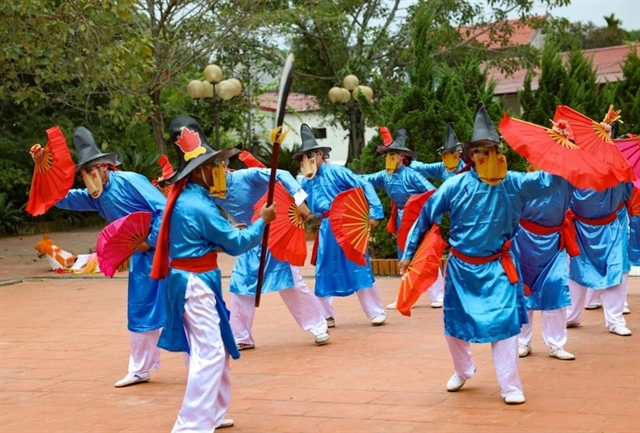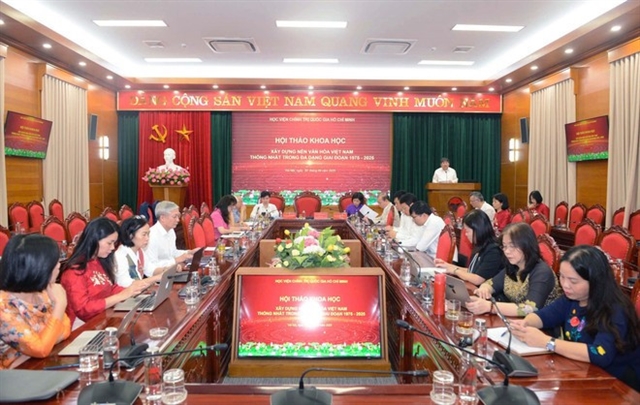 Life & Style
Life & Style


|
| Xuân Phả dance is named in the list of National Intangible Cultural Heritage. — VNA/VNS Photo |
HÀ NỘI — Cultural development in Việt Nam must extend beyond preserving or reviving traditions, embracing a broader strategy that fosters shared values under the ethos of “unity in diversity”, mutual respect, and inclusive, peaceful and sustainable growth, heard a seminar in Hà Nội concluded on September 30.
Hosted by the Hồ Chí Minh National Academy of Politics (HCMA), the event sought to shape a cohesive Vietnamese culture from 1975 to 2025, highlighting the nation’s journey toward cultural unity amid diversity.
In his opening remarks, HCMA Deputy Director Assoc. Prof. Nguyễn Duy Bắc described the past 50 years as a long and strategic journey to weave a unified yet diverse Vietnamese culture, syncing with historical shifts and yielding major achievements.
Culture has emerged as a form of “soft power”, Bắc observed, noting its role in sculpting Việt Nam's national identity and elevating Việt Nam's global stature in an era of global integration.
Yet, as Assoc. Prof. Bùi Hoài Sơn, full-time member of the National Assembly’s Committee for Socio-Cultural Affairs pointed out, the cultural sector faces pressing hurdles, like a tangle of overlapping regulations, investments that favour concrete infrastructure over human creativity, and the struggle of local content to hold its own in the relentless churn of the digital age.
To fix these shortcomings, Sơn called for a strategic response: empowering communities as genuine stewards of their cultural heritage, targeted investment in artisans and their successors, harnessing technology to amplify traditional values, and instilling cultural education early to ensure that younger generations carry forward Việt Nam's legacy with pride.

|
| At the meeting. — VNA/VNS Photo |
Echoing this view, Assoc. Prof Phạm Duy Đức from HCMA underscored the urgent need for a comprehensive and flexible cultural policy, one capable of safeguarding myriad ethnic identities while countering trends that erode time-honoured values.
Other scholars advocated for a refinement of cultural theory, alongside policies to foster a Vietnamese culture that is modern and innovative, yet deeply rooted in national identity, and ready to fuel sustainable growth in the new era.
Việt Nam, a multi-ethnic nation, is a vibrant mosaic of traditions, reflected in its lifestyles, customs, beliefs, arts, cuisine, and indigenous wisdom.
Since reunification in 1975, the Party and State have placed strong emphasis on building a unified yet diverse culture to consolidate national solidarity and pool resources for reform and progress. — VNA/VNS




